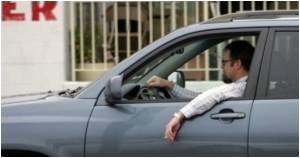82 percent of adults support banning smoking in cars when children under 13 are riding in the vehicle, says new poll.

Also in this month’s poll, 87 percent of adults said they’d support a ban on smoking in businesses where children are allowed. Seventy-five percent expressed support for banning smoking in homes where children have asthma or another lung disease.
Advertisement
Even among current smokers in the poll, more than one half supported bans that would protect children from secondhand smoke. For example, 60 percent of current smokers said they’d strongly support or support a ban on smoking in cars with children under 13 years old present, compared with 84 percent of former smokers and 87 percent of never-smokers.
“Although the number of people smoking has dropped dramatically in the last 50 years, secondhand smoke remains a health risk,” says Davis, who is associate professor of pediatrics and internal medicine at the U-M Medical School and associate professor of Public Policy at U-M’s Gerald R. Ford School of Public Policy.
In 2007 the American Academy of Pediatrics began advocating for specific legislation to prohibit smoking in cars with children present.
Advertisement
Between 2006 and 2011, four states (Arkansas, California, Louisiana and Maine) enacted statewide bans on smoking in vehicles carrying children. In 2013 three states (Utah, Oregon and Illinois) have enacted similar laws.
Four other states (Hawaii, Indiana, New Jersey, New York) have cities or counties that ban smoking in vehicles with children present.
“But this is about children’s health, not about writing tickets. Just having the laws in place raises awareness and discourages the behavior – reducing the chances that kids will be exposed to secondhand smoke,” says Davis.
“Given the high level of public support for laws prohibiting smoking in vehicles with children in this poll, it may be that the bans enacted by a small number of states should be considered by many more states, and perhaps at the national level,” Davis says. Currently, the federal government prohibits smoking on all commercial flights. “Forty of the 50 states currently ban smoking in public places in one form or another. At this time, we are not aware of laws at this time that prohibit smoking in homes where children have asthma or other lung conditions. However, the level of public support for ways to reduce children’s exposure to secondhand smoke is so high that now may be the time to for public health officials and legislators to move forward on ideas like these to protect children’s health,” Davis says.
Source-Newswise















